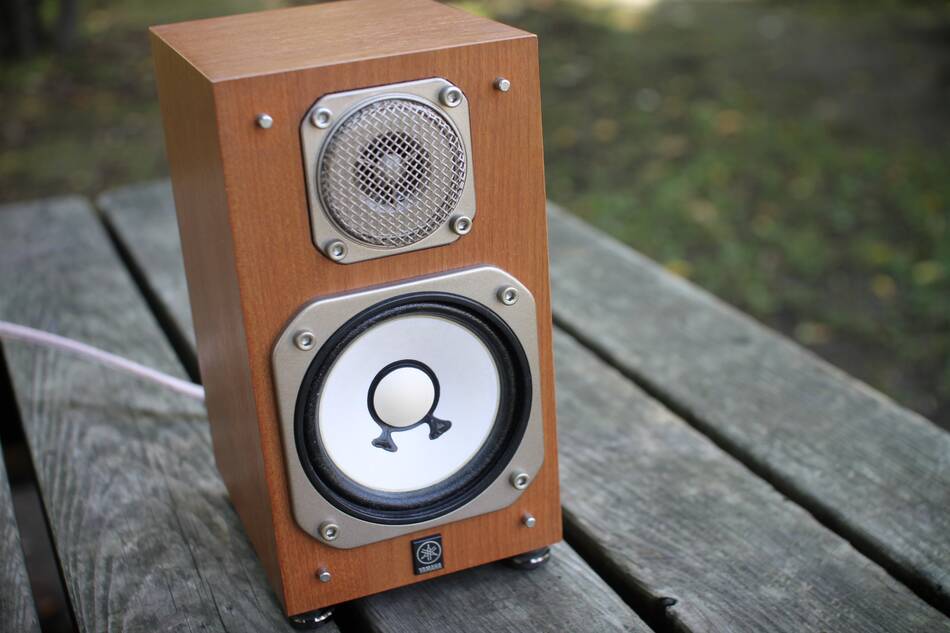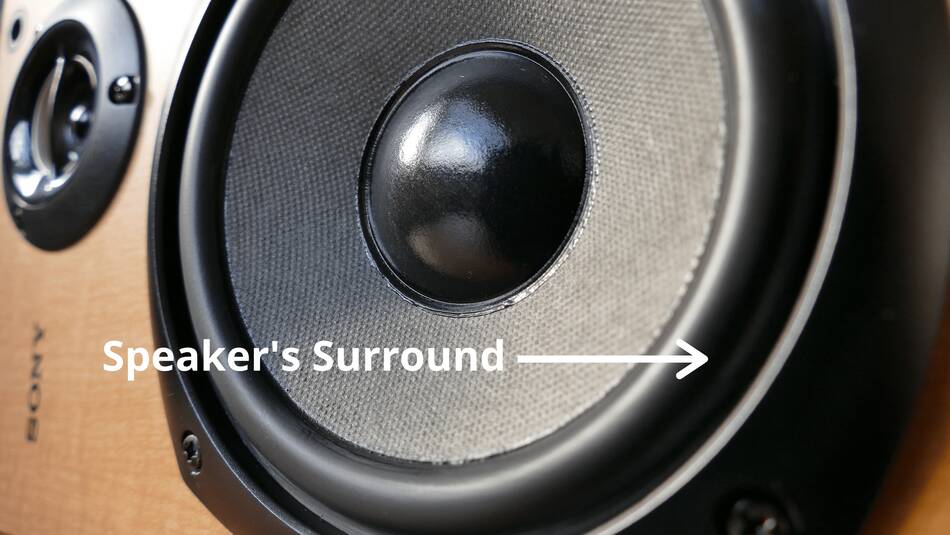
Perhaps you want to store your speakers in an unheated garage, or maybe you don’t want your newly acquired stereo speakers to get damaged in the winter. Whatever the reason, we are all aware of how temperature conditions affect some consumer electronics such as TVs, smartphones, and even speakers.
As I explained in my article on how speakers overheat, heat and hot temperature conditions affect speakers and can damage them. But what about cold temperatures? Does cold temperature affect speakers?
Most of the components that make up a speaker, including all the electronic components, are not affected by cold temperature. This means a speaker’s performance will not get affected by low temperatures, and it won’t damage it either. However, cold temperature combined with moisture can be harmful to speakers.
Although cold temperature conditions, in itself, cannot damage speakers or affect its performance in any way, when certain conditions are met, cold temperatures can affect speakers. If you want to learn more about this, keep reading.
We will take a closer look at the components of a speaker and why they are not so much affected by cold or freezing temperatures. After that, we’ll talk about the conditions required to damage a speaker in cold weather.
Later in the article, we will talk about the parts of a speaker that is likely to be affected by low temperature and how to protect them against it. Let’s get straight into it.
Table of Contents
Why Cold Temperature Does Not Affect Speakers
The main components of a speaker are magnets, a voice coil, a speaker cone, and wires. There are other parts in the speakers, but they play the supporting role.
Let’s take a look at magnets. Magnets can lose their magnetism when they are subjected to heat for an extended period. In essence, a hot temperature is not suitable for speaker magnets because it can reduce its magnetic field strength.
On the other hand, a cold temperature may actually be good for the magnets in a speaker. A cold temperature will slow the rate at which atoms vibrate in the magnet. And this will increase the strength of the magnet. In this case, low temperature is a plus for speakers.
Another important component of a speaker is the cones. They play a major part in how the speaker sounds or otherwise known as frequency response. Speaker cones are usually made of paper, plastic, aramid fiber, and sometimes metal.
One thing all these different materials used for speaker cones have in common is they are barely affected by cold temperature. It’s true that just as any other material, they may expand and contract with temperature changes. But that change is barely negligible, and it won’t affect the speaker’s performance or damage it.
The voice coil and all the wires in a speaker are usually made of copper. There is no way a cold or freezing temperature can have any negative effect on copper. They might get stiff, but that won’t affect the speaker’s performance nor damage it.
If copper wires were affected by cold weather, our home electrical wiring systems would stop working in the winter.
Some people park their cars outside in the winter. And even when the temperature is below -30 degrees celsius or less, it still doesn’t have any effect on the car’s stereo speakers. They will work just fine when turned on.
You should also remember that speakers are shipped in trucks and shipping containers with no heating systems or whatsoever. Yet, the speakers work perfectly without any issues.
Cold can, however, make some parts of the speaker stiff and susceptible to break. We’ll talk about these parts later in the article. But when the temperature returns to room temperature, they should loosen up.
So, in a nutshell, you shouldn’t worry about low temperatures affecting your speaker in any way. They will be fine.
Moisture and Cold Temperature is Bad for Speakers
As we have already talked about, cold temperature alone is not harmful to speakers. However, when combined with moisture, low temperatures can be bad for speakers. But how?
When the speakers are kept in a humid area, cold temperatures will cause the vapor to condense on the speakers. The condensed moisture can cause metallic parts of the speakers to corrode. This can affect the speaker terminals and speaker cones made of metal.
Condensed water on speaker terminals can also lead to a short circuit. A short circuit in a speaker is when the positive and negative terminals on a speaker touch. This doesn’t happen often, but it can.
Is it Bad to Leave Speakers in the Cold?
Although not ideal, speakers can be left in the cold without any damage or bad effect on their performance. However, it’s important to allow it to warm up before you turn it on.
You should always let the speakers warm up for a few hours before you power them up. This will allow all the speaker parts that have become stiff and brittle due to the cold to loosen up.
Also, if there were any condensed liquid on the speakers, they will dry up once you allow the speakers to warm up for a while. This will prevent any damage that will have been caused by the condensed liquid on the speakers.
It’s also a good idea to wipe the speakers completely dry before you leave it to dry. It will speed up the process.
Speaker Parts That May Get Affected by Cold Temperature
Here are the few parts of the speakers that can be affected by cold weather
1. Surround

I’m not referring to the surround in surround sound systems. Speakers have a part called a surround, and is found on the edge of the speaker cone. It mainly regulates how far the speaker cones can move.
Most speaker surrounds are made of foam. This means, in cold weather, they tend to get stiff and brittle. They can easily break at extremely cold temperatures.
However, provided you don’t tamper with the speaker as much, surrounds will stay in place even in cold conditions. Once the temperature gets back to normal and you allow the speakers to warm up, they will loosen up and get back to normal.
2. Adhesive
Another thing that may get affected by cold weather is the speaker glue. Some speaker adhesives perform poorly in cold temperatures.
This can cause some parts that have been glued together to split. This really depends on the type of glue used for the speakers. But generally, speakers made these days have excellent adhesives, and this may not be an issue at all.
How to Protect Speakers Against Cold Temperature
Here are three tips to protect your speakers against any potential damage caused by low temperatures.
1. Don’t power them up when cold
If you don’t follow any of the tips in this section, don’t ignore this one. You should not power up your speakers when cold.
The main reason why is, there could be condensed water on the speaker terminals. And once you connect those terminals to an amp and power it up, it can cause a short-circuit. That can instantly damage the speakers or the amp, or both.
You always want to leave your speakers to sit not turned on for a few hours before you power them up. This will dry up any condensed water and allow all stiffened parts due to the cold to loosen up.
2. Pack them up when not in use
Another tip to keep your speakers protected against cold weather is to pack them up when they are not in use. You can pack them in the box they came with and keep it in a secure place.
Packing them up will keep them warm and reduce the level of condensation on them, if any at all.
3. Keep speakers in a temperature regulated area
To avoid any issues the speakers may have due to cold weather, simply keep the speakers in a temperature-regulated room.
Simply place them securely in a room included in an HVAC system to make sure they are always at room temperature. This is the best option, and I’m sure most people reading this article already know this.
So, if you have a spare room in the right room temperature where you can keep the speakers, it’s a good idea to store your speakers there.
Conclusion
In summary, you should probably not worry too much about low temperature affecting your speakers that much. A speaker will not damage, or its performance will not be affected by cold weather. That’s because cold temperatures do not affect the main components of a speaker.
However, in a humid room or in the presence of moisture, cold temperature can be bad for speakers. Low temperatures condense moisture onto speakers, which can lead to corrosion and a short circuit.

Hi, I’m Raymond. A keyboard player, music producer, and writer. And I’m also the founder of this blog. As someone who has been working with several audio and music equipment and different musicians for many years, my goal is to answer all your questions on music and equipment, as well as the latest music software and technology. For more info, check out my about me page
